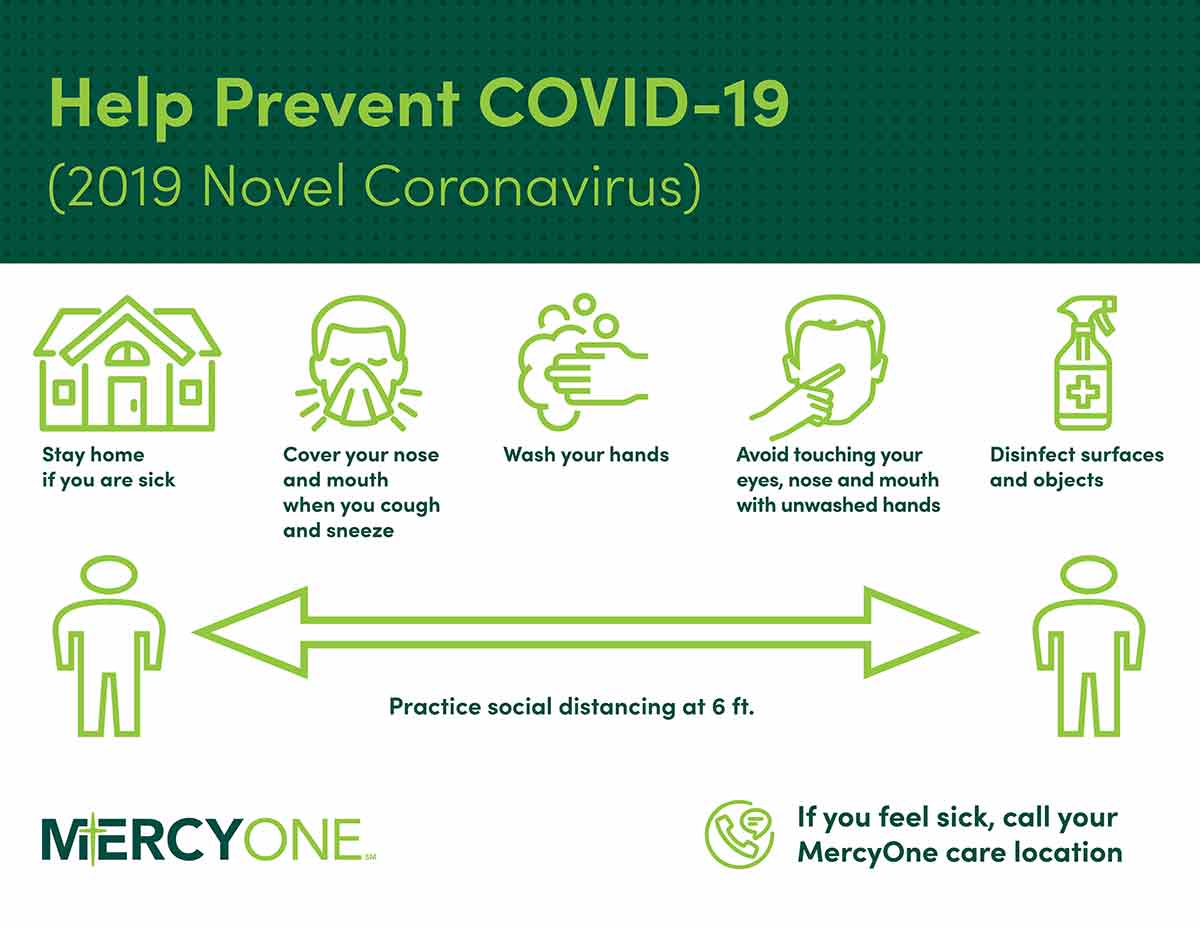
The influenza vaccine is more important than ever.
Every fall, health care providers urge people to get their influenza vaccine. But only about 40 percent of Iowans actually take this advice.
Confusion about influenza, often referred to as "the flu," still circulates. Some people think influenza is just a bad cold. Others think it is a stomach “bug”. There are big differences, though. Using the term "the flu" interchangeably for the respiratory virus and stomach illness leads to more confusion.
MercyOne infection prevention's Gail Gates is passionate about educating people about the importance of the influenza vaccine.
"Influenza is a respiratory virus, and that's what we're being vaccinated for," she explains. "There isn't a vaccination for the stomach illness. What makes influenza so important is that people get sick from it and can die from it. The vaccine is a way to prevent getting influenza or, if you do get it, to experience a milder case."
Still, some people are leery of the vaccination itself and think it can make them sick.
"Any time you are vaccinated, you're given a dose of what you're being vaccinated for," Gates explains. "The most common side effect is a sore arm. You might have a slight fever or slight body aches, but that is because your body is reacting to the vaccination in a positive way by building up the antibodies in your body to fight off the influenza virus. Those are normal side effects of many vaccines. It is a good reaction. It's your body saying, 'I'm building up antibodies to fight off influenza.'"
With both COVID-19 and influenza circulating this fall, getting the influenza vaccine is more important than ever.
The number of hospitalizations frequently increases during flu season, and with hospitals continuing to meet the needs of COVID-19 patients, additional influenza patients could pose a challenge.
It's also possible a person could contract both influenza and COVID-19, and we simply don't know yet the effect on the body of a duel diagnosis.
Health care providers are hoping COVID-19 education over the last several months will encourage more people to take the influenza season seriously.
"It will be the most interesting influenza season I've ever lived through," states Gates. "For the first time in more than 40 years in health care, we have finally embraced the importance of hand hygiene, surface cleanliness, and respiratory (breathing) etiquette. Hopefully these new behaviors people have adopted will help us see a less intense influenza season.”

It is important to receive your influenza vaccine early. Influenza cases are expected to start increasing in October, and it takes about two weeks for the antibodies to build up and offer protection. Everyone 6 months and older, with few exceptions, should get an annual flu vaccine. Contact your health care provider if you have questions.
Don't wait to get your influenza vaccine. Vaccines are already available in many areas; contact your local MercyOne provider today.
Safety is MercyOne's top priority, and we have taken many steps to create a safe health care environment for you and your loved ones, including:
- COVID-19 symptom and temperature screenings for all who enter our facilities;
- Requiring masks for clinicians, colleagues and visitors;
- Using Social distancing in common areas;
- Elevating cleaning protocols and increasing hand hygiene practices;
- Designating care areas for patients who have COVID-19 or symptoms to reduce the risk of exposure
Let’s build you an unbeatable care circle.
- More than 20,000 providers and supporters
- The region’s highest-rated specialty services
- More locations and more personalized care
